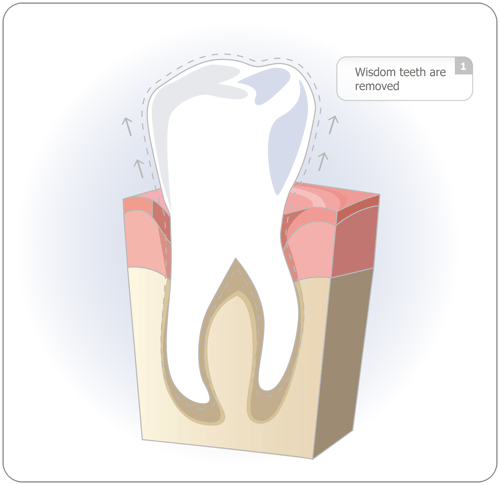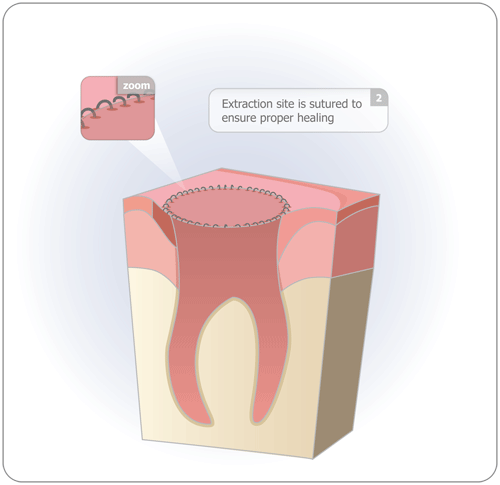-
Insurance
Why get oral surgery?
The removal of wisdom teeth is the most common oral surgery procedure done in dental clinics. There are also other reasons why oral surgery is required:
- repairing and treating serious conditions of the teeth, lips, jaw, palate or face
- treating common problems like sleep apnea, facial pain or infections
- repairing maxillofacial damage after an accident or injury
What is an oral surgeon?
Oral surgeons, otherwise known as maxillofacial surgeons, are dentists qualified to perform oral surgery. Their training involves an additional four years of education, including anesthesiology, surgical treatments of defects, accidents, diseases of the mouth, neck, face, gums and other soft tissues.
When are you referred to an oral surgeon?
Your dentist will refer you to an oral surgeon in these cases:
- a tooth has not erupted from the bone, and is pushing the healthy teeth
- you have a lesion, a tumor or any medical condition in or around your soft tissues
- you require a dental implant
- one or more teeth need to be removed
- you have teeth that are broken at the gum line
- corrective surgery for the soft tissues or bones
- treatment of infections of the face and maxillofacial area
- facial pain, such as TMJ (temporomandibular joint disease)
- obstructive sleep apnea
Also, your orthodontist might refer you to an oral surgeon if:
- you have an open bite (there is space between the upper and lower teeth when your mouth is closed)
- you have an unbalanced facial appearance from the front or the side
- you suffer from facial injury
- you have a receding chin or jaw
- you have protruding chin or jaw
- your lips do not meet when your mouth is closed
What are some common oral surgeries performed?
Tooth Extraction
The first step is to apply a local anesthetic to the affected area. After this, the surgeon will use special tools to pull out the tooth. Sometimes, teeth may be cut into smaller pieces in order to be removed successfully.
Impacted Tooth Extraction
Sometimes, this procedure requires patient sedation. The complexity of the procedure depends on the location and the size of the tooth. Your gums will be cut to create access to the bone tissue and the tooth. The tooth is cut into small pieces, and removed through the newly created opening. The gum is then remodeled and sutured.
Wisdom teeth extraction
Wisdom teeth, otherwise know as third molars, are permanent teeth that may errupt years after the other healthy teeth. They are the least needed and can sometimes endanger a patient’s health, especially when:
- They erupt through the gum, but your jaw is too small to accommodate them; they force your healthy teeth out of alignment and damage your normal bite;
- They erupt, but not in a normal position; this causes the roots to be overcrowded, thus damaging healthy teeth;
These situations may create high discomfort levels for the patient, damage the bite, create swelling and can lead to gum disease. In these scenarios, the surgical removal of wisdom teeth is the best course of action. Depending on the situation, a normal, healthy tooth will also be removed, to accommodate the other teeth and guarantee a balanced bite.

Contact
Indian Trace Dental Associates
46 Indian Trace
Weston, Florida 33326954-217-9200
Pages
- ABOUT US
- Contact Us
- Dental Health Services
- Dentist Appointment
- Home
- Meet our team
- Notice of Non-Discrimination
- Notice of Privacy Practices
- privacy policy
- Sample Page
- Site Map
- Terms of use
- CEREC? CAD/CAM
- Crowns
- Insurance
- Dental Hygiene
- Dental Technology
- Dental Technology – old
- Emergency
- fillings
- Root Canal
- Teeth whitening
- Lumineers
- Wisdom teeth / oral surgery
Information
Payment Options

![]()


